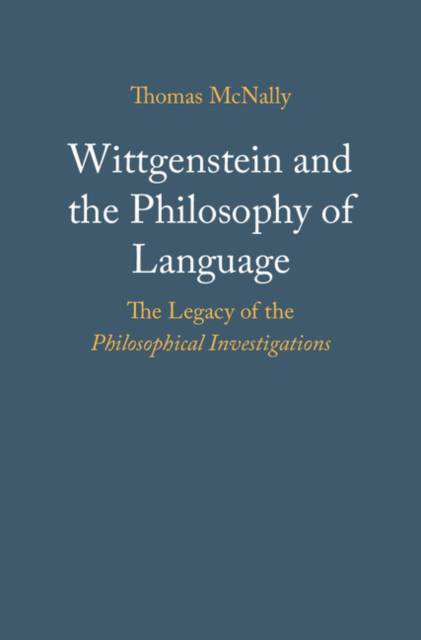
- Afhalen na 1 uur in een winkel met voorraad
- Gratis thuislevering in België vanaf € 30
- Ruim aanbod met 7 miljoen producten
- Afhalen na 1 uur in een winkel met voorraad
- Gratis thuislevering in België vanaf € 30
- Ruim aanbod met 7 miljoen producten
Zoeken
Wittgenstein and the Philosophy of Language
The Legacy of the Philosophical Investigations
Thomas McNally
Hardcover | Engels
€ 125,95
+ 251 punten
Uitvoering
Omschrijving
Throughout his philosophical development, Wittgenstein was more concerned with language than with any other topic. No other philosopher has been as influential on our understanding of the deep problems surrounding language, and yet the true significance of his writing on the subject is difficult to assess, since most of the current debates regarding language tend to overlook his work. In this book, Thomas McNally shows that philosophers of language still have much to learn from Wittgenstein's later writings. The book examines the finer details of his arguments while also clarifying their importance for debates outside the field of Wittgenstein studies. Presenting the issues thematically (as they relate to questions of reference, scepticism about meaning, and the social dimension of language, among others), the book explores how the arguments in the Philosophical Investigations remain relevant, compelling us to reflect in novel and challenging ways on the nature of language.
Specificaties
Betrokkenen
- Auteur(s):
- Uitgeverij:
Inhoud
- Aantal bladzijden:
- 218
- Taal:
- Engels
Eigenschappen
- Productcode (EAN):
- 9781107197947
- Verschijningsdatum:
- 22/09/2017
- Uitvoering:
- Hardcover
- Formaat:
- Genaaid
- Afmetingen:
- 155 mm x 231 mm
- Gewicht:
- 430 g

Alleen bij Standaard Boekhandel
+ 251 punten op je klantenkaart van Standaard Boekhandel
Beoordelingen
We publiceren alleen reviews die voldoen aan de voorwaarden voor reviews. Bekijk onze voorwaarden voor reviews.











